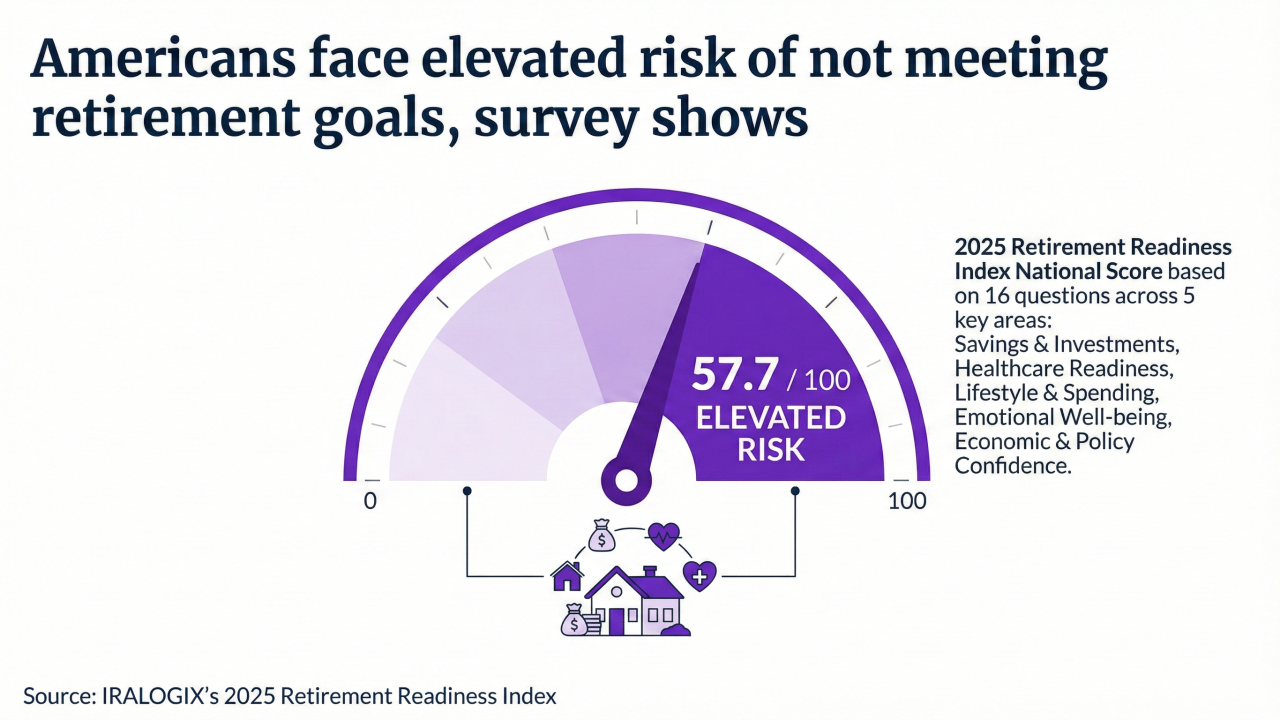Generation Z investors are pouring into tax-advantaged Roth accounts at a pace no prior generation has matched, according to Fidelity's latest third-quarter retirement analysis.
Across more than 52 million IRA, 401(k) and 403(b) accounts, Fidelity found that 95% of Gen Z contributions now flow into Roth options, well above the 75% rate for millennials and 66% for Generation X.
Advisers say a convergence of factors — including increased financial education, easier access and
"Gen Z and even younger millennials are getting financial education earlier than any group I've seen in my career," said Scott Van Den Berg, president of Century Management in Austin, Texas. "It's not that they're naturally born planners; it's that money lessons are everywhere now. If they want to learn about saving, investing or taxes, the information is sitting in their pocket. And you can tell they're paying attention by the way they're loading up on Roth accounts."
That education is increasingly paired with frictionless access. Fintech platforms
Some researchers have also explored whether state-run automatic-enrollment IRA programs, which default workers into Roth IRAs, are helping drive adoption. Fourteen states have launched these plans, requiring employers without a retirement benefit to automatically enroll workers unless they opt out. But the data suggests the Roth surge is coming mostly from higher-income households in the top third of earners — a group unlikely to be touched by auto IRAs, which are designed for lower-wage workers.
"It's looking a lot more like a fintech phenomenon than the impact of the state auto-IRA initiatives," researchers at the
An advantageous time for Roth contributions
Regardless of what's driving Gen Z investors toward Roth options, advisers say it's an ideal time for investors — young ones, especially — to be contributing to post-tax retirement accounts.
"Long-term concern over the
Along with historically low tax rates, younger workers often fall into lower tax brackets because of modest early-career earnings.
Some advisers argue that these low earnings — and the resulting low tax rates — are the main reason younger investors favor Roth accounts. But the data tells a more nuanced story.
While workers in their 20s have consistently earned less than older cohorts, Survey of Consumer Finances data shows that 20- to 29-year-olds have sharply increased their Roth contributions in just the past decade.
Advisors like Vered Frank, founder of New York-based StackWealth, say that "finfluencers" (financial influencers) on platforms like TikTok and Instagram are contributing to the current surge.
"
Young investors interested in more active trading are also attracted to these accounts since they allow them to avoid the short-term capital gains they might incur through pretax or personal brokerage accounts, Patton said.
What to weigh before going all-in on Roth
While Roth accounts offer powerful long-term benefits, advisers caution that there are several factors to keep in mind before committing all retirement savings to them.
"Although many assume that Roth accounts are simply inverse images of their traditional counterparts, there are a variety of other differences that are important to know," Patton said. "This includes the five-year rule, which states that withdrawals can't occur until five years have elapsed after the first contribution. … Most importantly, one must be aware that the 10% tax penalty on Roth earnings before the age of 59 1/2 means these are inherently long-term savings, which ideally shouldn't be utilized for short-term or pre-retirement liquidity."
Roth IRAs also lack some of the advantages offered by workplace retirement plans.
Additionally, some 401(k) plans allow loans, which IRAs never do. While not ideal to rely on, this feature can serve as a helpful safety net if unexpected expenses arise.
Despite those limitations, advisers remain enthusiastic about the wave of Roth adoption among younger investors.
"To me, the way Gen Z is leaning into Roth accounts says something bigger: This is a generation thinking long term," Van Den Berg said. "They're not rushing. They're building. And they're giving their future selves a head start most people wish they had taken."






